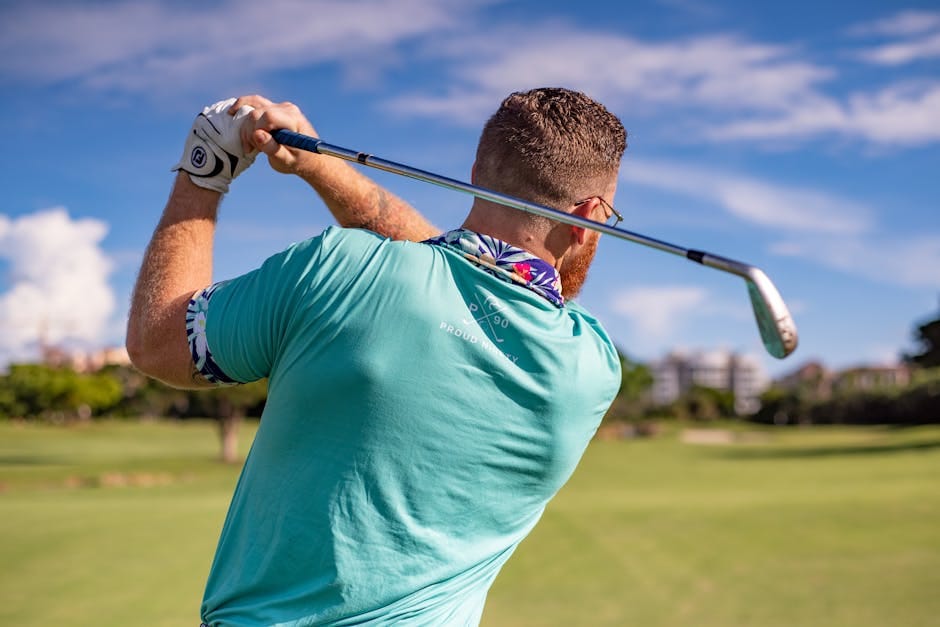As a complete novice to the world of golf, my first time on a golf course was a mixture of excitement and trepidation. I had only ever hit a golf ball a handful of times at a driving range, so the prospect of navigating an actual course seemed daunting.
The course was a sprawling expanse of lush greens, manicured fairways, and strategically placed bunkers. As I teed off on the first hole, I felt a surge of adrenaline mixed with a healthy dose of nerves. My swing was far from graceful, but to my surprise, I managed to make contact with the ball and send it soaring down the fairway.
As I progressed through the course, I encountered a variety of challenges. I struggled to hit the ball consistently straight, often landing in the rough or even the water. The bunkers proved to be particularly treacherous, costing me several shots. Yet, despite the frustrations, I found myself enjoying the game immensely.
There was something about the combination of physical exertion, mental focus, and the camaraderie of my playing partners that kept me hooked. As I made my way around the course, I began to appreciate the nuances of golf. I learned about the importance of club selection, the impact of wind conditions, and the strategic placement of shots.
With each hole, I felt my confidence grow. I started to hit the ball more accurately and with greater distance. The game became less about scoring and more about the joy of playing. By the time I reached the final hole, I had come to appreciate the beauty and complexity of golf.
As I putted out on the 18th green, I felt a sense of accomplishment. I had not only completed my first round of golf, but I had also discovered a new passion. The experience had been both challenging and rewarding, and I couldn't wait to get back on the course again.
**What is a Golf Club?**
A golf club is a specialized tool designed for striking a golf ball. It consists of a shaft, a grip, and a clubhead. The shaft is typically made of steel, graphite, or a composite material. The grip is made of leather or rubber and provides a comfortable and secure hold for the player. The clubhead is made of metal and is designed to impart specific characteristics to the ball, such as spin, trajectory, and distance.
**Types of Golf Clubs**
There are various types of golf clubs, each designed for a specific purpose. The most common types include:
* **Driver:** Used for tee shots and long approach shots.
* **Fairway wood:** Used for shots from the fairway or rough.
* **Hybrid:** A combination of a fairway wood and an iron, designed for versatility.
* **Iron:** Used for shots from the fairway, rough, or around the green.
* **Wedge:** Used for short approach shots and shots around the green.
* **Putter:** Used for rolling the ball on the green.
**Choosing the Right Golf Club**
Selecting the right golf club for each shot is crucial for optimal performance. Factors to consider include:
* **Distance:** Different clubs are designed for different distances.
* **Lie:** The angle of the clubface relative to the ground.
* **Wind conditions:** Wind can affect the trajectory and distance of the ball.
* **Ball position:** The position of the ball in your stance.
**Golf Club Technology**
Golf club technology has evolved significantly over the years, resulting in clubs that are lighter, stronger, and more forgiving. Some of the latest innovations include:
* **Adjustable clubs:** Allow players to customize the club's loft and lie angle.
* **Distance-enhancing clubs:** Designed to maximize distance.
* **Forgiving clubs:** Features that help players hit the ball more consistently and with greater accuracy.
**Conclusion**
Golf clubs are an essential part of the game of golf. By understanding the different types of clubs, their intended uses, and the factors to consider when choosing the right club, you can improve your performance and enjoy the game more fully. Whether you are a seasoned golfer or a complete beginner, the right golf clubs can help you reach your golfing potential.

